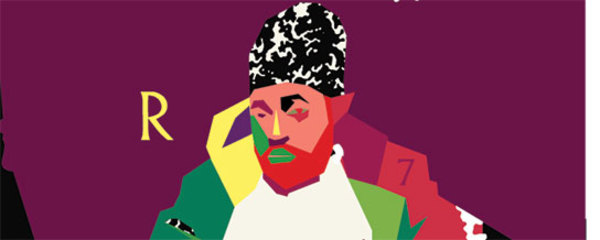Lutan Fyah: Rasta Ambassador
Jamaican singer Lutan Fyah has a reputation for succinct, spiritually charged language, which lifts the […]
Lutan Fyah: Rasta Ambassador
Jamaican singer Lutan Fyah has a reputation for succinct, spiritually charged language, which lifts the […]

Jamaican singer Lutan Fyah has a reputation for succinct, spiritually charged language, which lifts the artist (born Anthony Martin) above the pack of just-arrived cultural reggae singers. His third album, Phantom War (Greensleeves), is populated by rich, memorable songs, all imbued with forthright Rasta ethics.
Martin’s strength and piousness are partially the result of tests he endured as a player in Jamaica’s Premier League football association. Coaches were outright hostile when the talented midfielder would not trim his locks. As a result, Martin left football in 1996 for musical pursuits. He recorded his first material at Buju Banton’s Gargamel Studios before collaborating and touring with Jah Mason and linking up with Bay Area producers Lustre Kings for his 2005 album, Time and Place.
When I reach Martin on his mobile phone in Jamaica, he’s bouncing down a potholed road en route to his new Tsahai Music studio headquarters. He’s keen to explain the inspiration for Phantom War: “[The album] means that I-and-I can come across with a message of Rastafari so people can understand Lutan Fyah on a different level. [I-and-I] choose to teach the youth dem about the ghetto runnings in Jamaica and worldwide. The album speaks of how we go about our day-to-day lives.”
Primarily a collection of tracks on recent modern roots riddims like Black Shade, Blaze, and Triumphant, Phantom War maintains a cohesive vibe borne of its conscious messages. Songs like “Mother Earth’s Healing” and “Screaming For The Poor” underscore Martin’s moral convictions. “We’re living in a shituation where anything can happen,” he remarks, “and the community have to be uplifted for the youth to see a better way. The children of the ghetto should get better education; governments of the world should find a way to let them get it free, or at least affordable.”
Martin literally wears his message on his sleeves. Adorning the singer’s crisp khaki suit are Rastafarian icons and medallions, including a large letter R and number 7. “I-and-I a Bobo Ashanti,” he explains. “The ‘R’ stands for the righteousness government; we don’t deal with the ‘X’ government. [Ours is] a theocratic government with which we can reach out to the people of the world. We say Haile Selassie [unleashed] the seven seals, the seven elements of creation, which manifest on a spiritual level through humankind. When you see the people stand up for their own self and them a’ own opinion, it’s ’cause Haile Selassie manifest the seventh seal.”
As we conclude our interview, Martin breaks into a spontaneous five-minute acapella verse. His spiritual message is as unwavering as his voice is clear, underscoring the point that music is this artist’s form of activism. “We try and declare ourselves through music cause music is what we have,” he says. “We got nothing else.”

